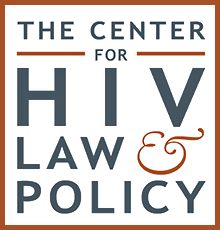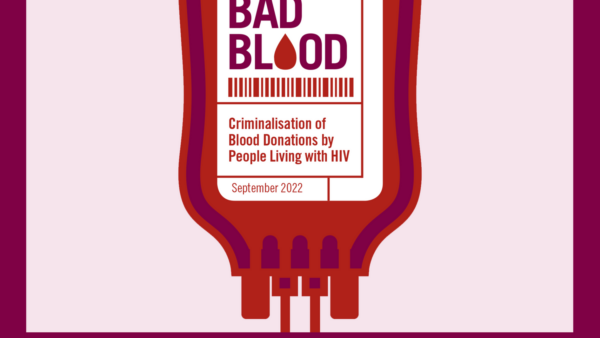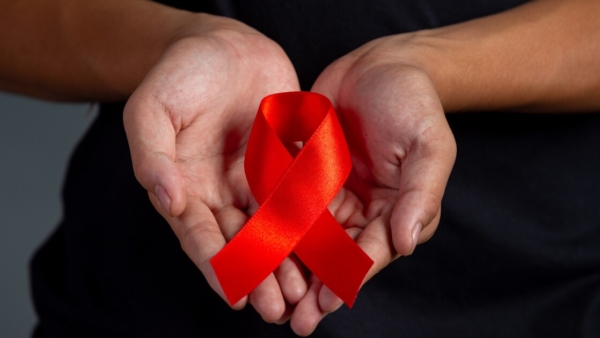Overview
Tennessee law contains two main HIV-specific provisions related to ‘criminal exposure’ and ‘aggravated prostitution’. These laws were enacted in 1994 and 1991, respectively, and are actively enforced.
The criminal ‘exposure’ provision, which covers hepatitis as well as HIV, makes it an offence for someone aware of their status to engage in ‘intimate contact’ with another, as well transfer or donate blood, organs, or fluids in way which presents a ‘significant risk’ of transmission, or to share non-sterile needles (see our report, Bad Blood, for a global analysis of the criminalisation of blood donations). ‘Intimate contact’ is defined in the statute to include ‘exposure’ to bodily fluids in a way which creates a ‘significant risk’ of transmission, which means it is not limited to sexual contact. Neither intention to transmit nor actual transmission are required under the law, and use of protection or adherence to treatment are not defences. The law makes it an affirmative defence to show that the partner was aware of the accused’s status, knew the conduct could result in infection, and consented to the act.
Although the law requires both ‘exposure’ to fluids and a ‘significant risk’ of transmission (except for needle-sharing, where the act of sharing is sufficient), it does not specify what conduct would meet this threshold. As such it has been left to case law to define these terms. In State v Bonds, the Court of Appeals ruled that ‘exposure’ does not require actual contact with or transfer of fluids, but a risk of contact. In State v Hogg, the Tennessee Supreme Court defined ‘significant risk’ as a possibility ‘more definite than a faint, speculative risk, as shown by medical proof’. These rulings set a relatively low bar for proving ‘exposure’, though the requirement for ‘medical proof’ provides some security against spurious convictions. It may also vitiate guilt if condoms are used, or the accused has an undetectable viral load, as these would both negate the risk of transmission.
The ‘aggravated prostitution’ offence is different in nature as it is essentially a sentence enhancement for people living with HIV who commit the regular offence of ‘prostitution’. The offence is committed when someone engages in sexual activity as a business, works in a ‘house of prostitution’, or loiters in a public place for the purposes of being hired to engage in sexual activity. It requires no intention to transmit, any risk of transmission, or actual transmission. In fact, there is no need for any sexual activity to occur, and many prosecutions have taken place for offering conduct which never materialised.
Both the criminal exposure and aggravated prostitution provisions are class C felonies, carrying a penalty of three to 15 years’ imprisonment and a fine. Both are punished significantly more severely than comparable general offences; an offence of ‘exposure’ to STIs generally is only punishable by up to 30 days’ imprisonment and a fine, while ‘prostitution’ is punishable by up to six months’ imprisonment. Additionally, those convicted of either offence were previously required to register as sex offenders, which may impose invasive restrictions, making Tennessee one of just six US states to require this at the time.
Officials are also given powers under public health laws to quarantine or isolate people living with HIV in a secure facility if they are deemed a ‘significant risk’ to public health. Escape from such a facility is a class E felony punishable with one to six years’ imprisonment and a fine. People suspected of living with STIs generally can be compelled to undergo exams, tests, and treatment, and may also be isolated or quarantined.
An analysis published by the Williams Institute in June 2022 shows significant enforcement of these laws. The report found that 154 people had been convicted under these two HIV offences. In addition, 51% of those convicted for the sex work offence had been placed on the sex offenders register, with 46% of those convicted for criminal ‘exposure’ being designated as sex offenders’. The report found that the laws are being disproportionately enforced against women (46% of arrests v 26% of population living with HIV) and Black people (75% v 57%). When examining data on socio-economic status, the report found that people with a lower socio-economic status also faced a heavy burden under the laws. Where detailed case data could be accessed, it revealed that the overwhelming majority of sex work cases involved no sex at all, while for ‘exposure’, the vast majority of cases involved sex without disclosure, with one case relating to spitting/biting. Six of these sexual ‘exposure’ cases involved condom use, while four involved people on effective treatment, highlighting both the disproportionality and unjust application of these laws.
In April 2022, a bill to reform the state’s criminal ‘exposure’ law was introduced in the legislature. The original bill aimed to reduce the penalty to a misdemeanour, in line with existing penalties for other communicable diseases, as well as take into account the intent of the accused, their use of protection and adherence to medical treatment. It also proposed to repeal the requirement to register as a sex offender upon conviction for this offence, as well as removing those already on this list (except where other offences were also present). Following pushback from some lawmakers, the bill was amended to only repeal the sex offender registration aspect of the current criminal ‘exposure’ law. This version of the bill passed through the Senate but did not receive the required majority in the House to be adopted, and was referred for further consideration. In May 2023, the bill removing the sex offender registration was adopted and signed into law. As well as removing registration for people convicted in future, the approximately 70 people already on the register for criminal ‘exposure’ can apply to have their names removed. While this reform eliminated one harmful aspect of Tennessee’s HIV laws, ‘exposure’ continues to be prosecutable in the state, most recently in July 2023 when a man was charged with ‘criminal exposure to HIV’.
Importantly, this bill applied only to the criminal ‘exposure’ provision, while aggravated prostitution continued to be liable to sex offender registration. As of the end of 2023, there are nearly 80 people on Tennessee’s sex offenders’ register for aggravated prostitution, and only one person has ever been removed from the register, made possible by an amendment in 2015 in which survivors of abuse or trafficking are exempt. In October 2023, a group of organisations including the American Civil Liberties Union, the Transgender Law Center, and the ACLU of Tennessee, filed a lawsuit challenging the aggravated prostitution statute and the associated sex offender registration requirement, asking the courts to strike down the laws as discriminatory.
In December 2023, the Justice Department found that the aggravated prostitution law violates the federal Americans with Disabilities Act as it discriminates against people living with HIV. This finding requires a range of remedies to be adopted, including an immediate moratorium on enforcement, repeal of the law, removal of individuals from the sex offenders registry, and expungement of convictions. In February 2024, the Justice Department filed a lawsuit against the State of Tennessee and the Tennessee Bureau of Investigation to enforce these findings. In May 2024, it was reported that the Justice Department had secured agreement with the District Attorney of Shelby County, the most populous county in Tennessee, to immediately cease prosecutions under the aggravated prostitution law. This case could have significant ramifications for similar laws around the US.
While the federal challenge to the law is not expected to go to trial until 2026, the state legislature introduced legislation to remove the mandatory sex offender registration requirement, and allow those already on the register to have their names removed, which was approved by both houses in February 2024. The bill was signed into law by the Governor in March, and entered into force in July. In the same month, the names of people on the sex offender’s registry for the prostitution offence began to be removed.
Despite movement towards decriminalisation in Tennessee, another bill expanding HIV criminalisation was approved in 2024. This bill extended the aggravated rape provision to include circumstances where the person who commits ‘unlawful sexual penetration’ is living with HIV. There is no requirement for intent to transmit, or proof of transmission for this aggravated sentence to be imposed.
For a detailed analysis of HIV criminalisation in Tennessee, as well as all other US states, see the Center for HIV Law and Policy report, HIV Criminalisation in the United States: a Sourcebook on State and Federal HIV Criminal Law and Practice.
Laws
Tennessee Code § 39-13-109
Criminal exposure to HIV, HBV, HCV
a. A person commits the offense of criminal exposure of another to human immunodeficiency virus (HIV), to hepatitis B virus (HBV), or to hepatitis C virus (HCV) when, knowing that the person is infected with HIV, with HBV, or with HCV, the person knowingly:
-
- Engages in intimate contact with another;
- Transfers, donates, or provides blood, tissue, semen, organs, or other potentially infectious body fluids or parts for transfusion, transplantation, insemination, or other administration to another in any manner that presents a significant risk of HIV, HBV or HCV transmission; or
- Dispenses, delivers, exchanges, sells, or in any other way transfers to another any nonsterile intravenous or intramuscular drug paraphernalia.
b. As used in this section:
-
- “HIV” means the human immunodeficiency virus or any other identified causative agent of acquired immunodeficiency syndrome;
- “Intimate contact with another” means the exposure of the body of one person to a bodily fluid of another person in any manner that presents a significant risk of HIV, HBV or HCV transmission; and
- “Intravenous or intramuscular drug paraphernalia” means any equipment, product, or material of any kind that is peculiar to and marketed for use in injecting a substance into the human body.
c.
-
- It is an affirmative defense to prosecution under this section, which must be proven by a preponderance of the evidence, that the person exposed to HIV knew that the infected person was infected with HIV, knew that the action could result in infection with HIV, and gave advance consent to the action with that knowledge.
(…)
d.
-
- Nothing in this section shall be construed to require the actual transmission of HIV in order for a person to have committed the offense of criminal exposure of another to HIV.
(…)
e.
-
- Criminal exposure of another to HIV is a Class C felony.
Tennessee Code § 39-13-156
Aggravated Prostitution
a. A person commits aggravated prostitution when, knowing that such person is infected with HIV, the person engages in sexual activity as a business or is an inmate in a house of prostitution or loiters in a public place for the purpose of being hired to engage in sexual activity.
b. For the purposes of this section, “HIV” means the human immunodeficiency virus or any other identified causative agent of acquired immunodeficiency syndrome.
c. Nothing in this section shall be construed to require that an infection with HIV has occurred in order for a person to have committed aggravated prostitution.
d. Aggravated prostitution is a Class C felony.
Tennessee Code § 39-13-502
Aggravated Rape
(a) Aggravated rape is unlawful sexual penetration of a victim by the defendant or the defendant by a victim accompanied by any of the following circumstances:
(…)
(4) The defendant knows that the defendant is infected with HIV. As used in this subdivision (a)(4), “HIV” means the human immunodeficiency virus or any other identified causative agent of acquired immunodeficiency syndrome;
(b) (1) Aggravated rape is a Class A felony.
Further resources
Not all laws used to prosecute people living with HIV in this state are included on this page. For a comprehensive overview and analysis of HIV-related criminal and similar laws and policies, visit The Center for HIV Law and Policy
Using data obtained from Tennessee’s sex offender registry, this study examines the enforcement of HIV criminalization laws in Tennessee from 1991 to 2022.
Carol L. Galletly and Zita Lazzarini examine how Tenneessee's two HIV-specific laws have been applied between 2000 and 2010 to sex and sex work.










